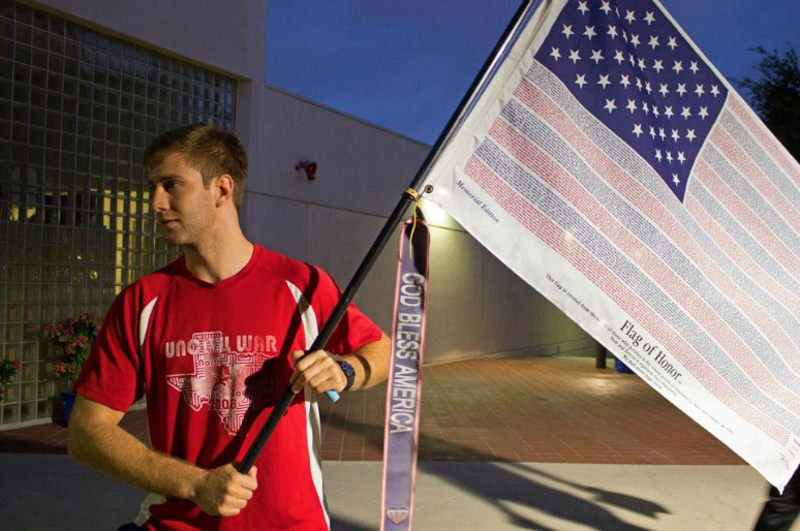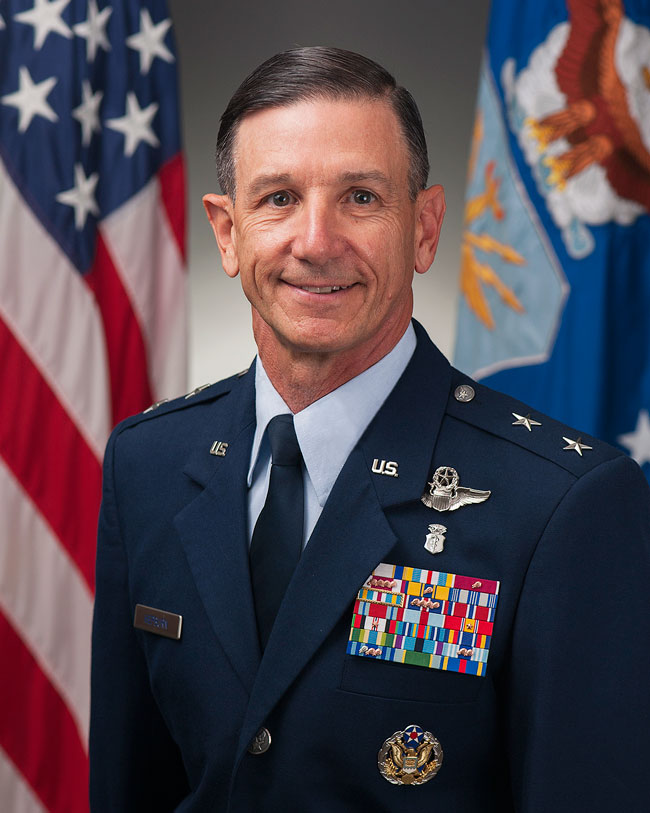Military Health Interest Group Helps UT Health Science Center Students Navigate Military Life


“San Antonio is unique for its military presence and profound
opportunities, and we wondered how we can enlighten the student body on this,” explained Matt Lunati, second year medical student at UT Health Science Center.
Lunati was sitting at the library with second year medical student John DeMis and second year medical and Master of Public Health student Rutger Gunther, when they realized that there were a lack of avenues on
campus to help military students navigate the Health Professions Scholarship Program requirements while also providing information on the military opportunities in San Antonio to all students.
Gunther explained that the HPSP Scholarship program is very unique and it requires students to navigate their way through a military system when most come from civilian backgrounds.
“One of the goals of this group is to pass knowledge down from class to class, in order to make the transition from civilian to soldier a little easier,” Gunther said.
“Matt and I are Navy reservists, Rutger is Army. Matt and I don’t have a military background, and very little understanding of what we can and can’t do, so we wanted to create an organization that would help students navigate what their life would be like
for the next four years,” DeMis said.
DeMis explained that before the Military Health Interest Group was established in April 2014, students on this scholarship program usually “figured it out” and then left after their four years without sharing information to underclassmen.
“What we ended up finding was that many people at the HSC had the same problems. They wanted to tap into military experiences and get the most out of their education, which many had done before, but the process kept repeating over and over again,” DeMis said. “It was important to us because it was a unique need to the medical students at the UT Health Science Center.”
Lunati explained that the UT Health Science Center’s location in San Antonio is important because of the numerous military bases and facilities across the city including the San Antonio Military Medical Center and the Center for the Intrepid.
“San Antonio distinguishes itself from any other city in Texas (Houston, Dallas, Austin) through the relationship it has with the military. You can feel is when you even enter a plane destined for San Antonio,” Lunati said. “It is a sense of pride, celebration, and commitment towards the military within this city, and for a good reason. San Antonio has many of the best military bases and military health facilities in the country. This allows for endless opportunities to volunteer, serve, gain unique experiences, and aid in research through the military.”
One of the goals of the Military Health Interest Group is to create a multidisciplinary team with students and faculty which would further the educational opportunities for all health science students.

“In terms of health sciences with graduate school and postdocs, there are multiple ground breaking research projects going on through the military in San Antonio. We can bring in speakers talking about their specific projects and set up meet and greets for professional development and networking,” Lunati said.
So far, the group has organized a 9/11 solidarity run to honor those who lost their life during the Sept. 11 attacks in 2001.
“We had teams of students run a commemorative flag from 6 a.m. to 6 p.m. around the campus. It was a lot of fun, people were honking their car horns as we ran past, cheering us on. We even had the local Fire Station provide runners as well,” DeMis said.
In addition to the 9/11 solidarity run, the group also organized a speaker panel from each branch of the military, who were also a representative sample of the health professions, who spoke about their careers and life in the military. The panel also included Dr. Byron Hepburn, director of the new Military Health Institute.

“We wanted our panel to excite people about what’s out there, military related, and see that there might be a way to get a little more out of their time here on campus. Given that we had so many people come, we think we did excite people,” DeMis said. “Our school is unique because it fosters so much student-faculty and student-student interaction, it’s definitely why we felt we comfortable starting our organization.”
Lunati explained that one of the reasons he chose UT Health Science Center was because of the people and the environment.
“I realized UTHSCSA was the school for me shortly after my interview day,” Lunati said. “The student body, professors, and deans all displayed the passion to better each other, the school, and themselves in that order. The students showed a love for the school, and a desire to improve themselves and their environment. All of this has proven to be true while being here.”
The group plans to hold a military health speaker series each semester and a UT Health Science Center campus-wide volunteer event once a semester. If you would like to join the Military Health Interest group, please email mhig.uthscsa@gmail.com.
